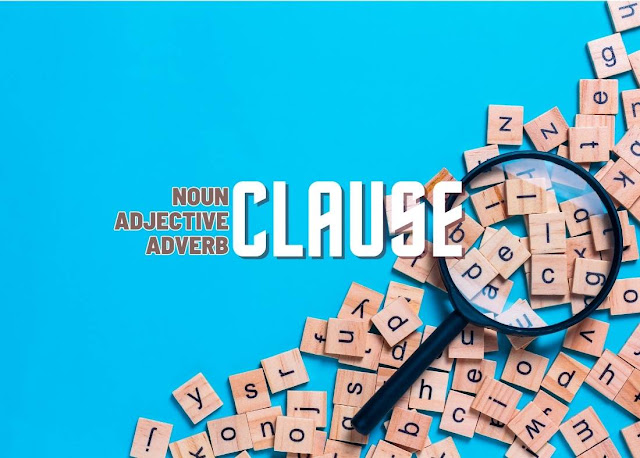A clause is a group of words that contains a subject and a verb. Clauses can be classified into three types: noun clauses, adjective clauses, and adverb clauses.
Noun Clause: A noun clause is a clause that acts as a noun in a sentence. It can function as the subject of a sentence, the object of a verb, or the object of a preposition. Noun clauses often begin with words like that, whether, who, whom, whoever, what, whatever, where, when, why, how.
To check if the dependent clause is a noun clause, substitute the clause with "it", "John" or "Mary"
Example:
- That he is always late annoys me. (It)
- I don't know whether she will come. (It)
- The person who said it is wrong. (John)
Example:
- The woman who is wearing a red coat is my neighbor.
- The book that you lent me was very interesting.
- The day when we met was sunny and warm.
Example:
- After she finished her work, she went for a walk.
- Although he studied hard, he still failed the exam.
- Because it was raining, we decided to stay inside.


Post a Comment
Links will not work in comments